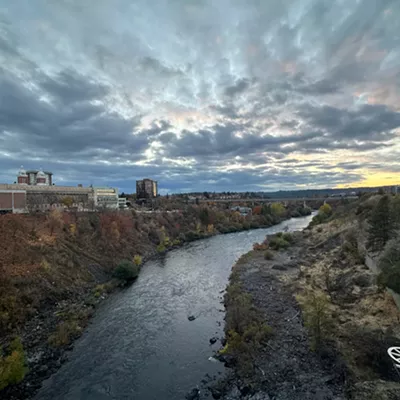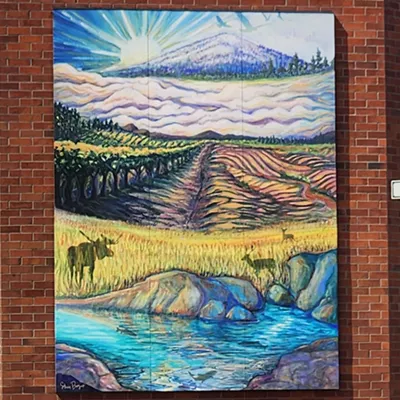Heeding both legislation and economics, Avista will get out of the coal business by the end of 2025, announcing this month that it will sell its share of the two remaining operational units at Colstrip power plant in Montana. Coal provides about 8 to 9 percent of Avista's power needs in the Northwest but has become less economically viable than other options such as wind and natural gas. That, coupled with a Washington law requiring utilities to get out of coal, drove the company to make a deal with NorthWestern Energy. Avista (and its customers) will remain responsible for remediation and cleanup that is likely to be a liability for decades. Avista will also retain access to the massive transmission line system that connects Colstrip to the Pacific Northwest and could help the utility tie in clean energy projects in the future. The remaining owners have 90 days from the announcement to exercise a right of refusal on the deal.
RAIN, SLEET, FLOW
Spokane's sewer system was overwhelmed with rain and melting snow in late December, when nearly 8 million gallons of untreated water flowed into the Spokane River in a single day. The city's network of "combined sewer overflow" tanks wasn't able to handle the mix of sewage and stormwater in its pipes on Dec. 27. That day was unseasonably warm and rainy, following frigid and very snowy weather. Despite that overflow — and another of about 2.7 million gallons in June last year — the city's system is working as intended, says Public Works spokesperson Kirstin Davis. In 2016, before all the tanks were online, 80 million gallons of untreated water flowed into the river, compared with the roughly 15 million gallons of overflow last year. In comparison, the tanks captured more than 100 million gallons to get treated at the wastewater treatment plant last year.
'LEAVE NO DREAM UNFULFILLED'
David Matheson, an elder and influential leader of the Coeur d'Alene Tribe, died at age 71, and services for him were held earlier this month. Matheson, who was serving a term on the Coeur d'Alene Tribal Council, was once the youngest council chairman ever elected. He led efforts to create many significant economic projects, including the tribe's casino and golf course, and he influenced Native American policy across the nation, serving as the head of the U.S. Bureau of Indian Affairs from 1990 to 1993. He leaves behind his wife, children and grandchildren, with whom he often shared his love of riding and training horses. "Dave has left us a profound legacy," said Chief J. Allan, current chairman, in an announcement about Matheson's passing. "He was a true visionary who had the foresight to see the great possibilities for the Tribe and Native Americans." ♦


























